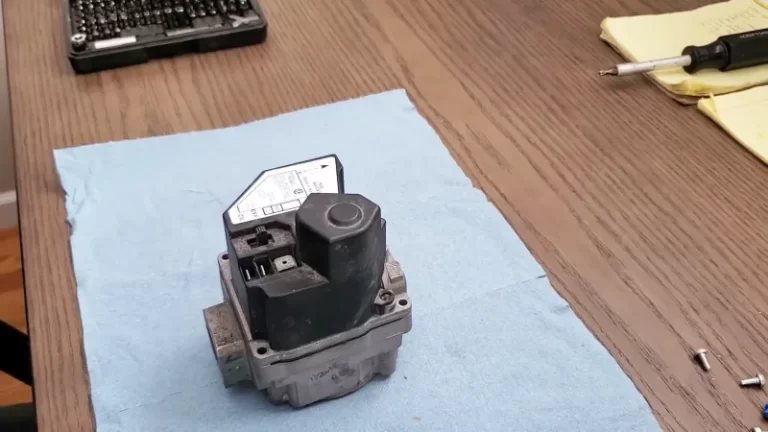Should I Turn Off My Air Conditioner During A Hurricane?
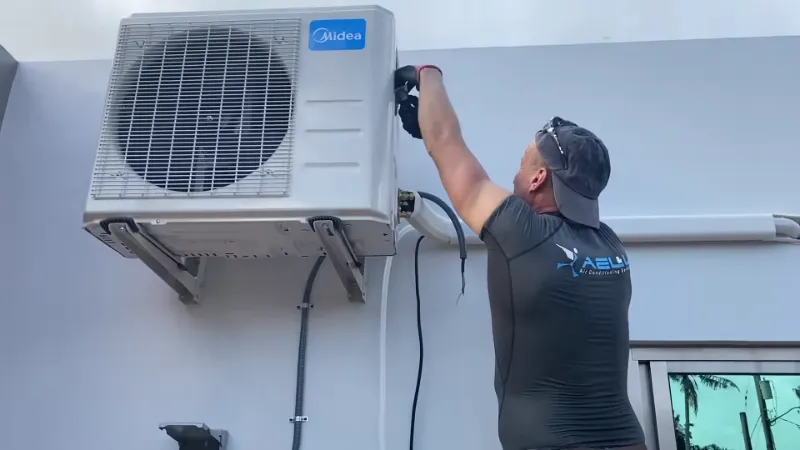
The arrival of a hurricane can be a stressful and uncertain time, and it is important to take steps to protect your home and belongings. One aspect of hurricane preparedness is ensuring the safety of your appliances, including your air conditioner.
Running an air conditioner during a hurricane can pose a number of risks, including damage from flying debris, power outages, and water damage. In this article, we will explore the reasons to turn off your air conditioner during a hurricane, the steps you should take before and during the storm, and what to do if you evacuate.
By understanding the dangers associated with running an AC during a hurricane and taking the necessary precautions, you can help protect your home and appliances and ensure a smooth recovery after the storm.
You'll Learn About
Should I Turn Off My Air Conditioner During A Hurricane?
It is generally recommended to turn off your air conditioner during a hurricane to prevent damage to the unit. This is because high winds can cause debris to fly into the unit, causing damage to the coils, fan, or other components.
Additionally, power outages are common during hurricanes, which can cause your air conditioner to shut off abruptly. This can cause damage to the unit when it starts back up after power is restored.
If you are evacuating your home during a hurricane, it is important to turn off all appliances, including your air conditioner, and unplug them to prevent damage from power surges. If you are not evacuating, it is important to secure your air conditioner and other appliances to prevent them from becoming hazards during high winds.
It is also a good idea to turn off your air conditioner if you are concerned about water damage. Hurricane-force winds can cause rain to enter your home through windows or doors, and turning off your air conditioner can help prevent water damage to the unit.
It is generally recommended to turn off your air conditioner during a hurricane to prevent damage to the unit and to avoid potential hazards during high winds. If you are evacuating, it is important to unplug the unit to prevent damage from power surges.
Reasons to Turn Off Your Air Conditioner
Prevention of Debris Damage From High Winds
One of the most significant risks associated with running an air conditioner during a hurricane is the potential for damage from flying debris. High winds can cause trees, branches, and other debris to fly through the air and collide with your air conditioner, causing damage to the coils, fan, or other components. To prevent this type of damage, it is important to turn off your air conditioner and secure any loose objects in your yard that could become hazards during high winds.
Protection From Power Outages and Surges
Another reason to turn off your air conditioner during a hurricane is to protect it from power outages and surges. Hurricanes often result in power outages, and if your air conditioner shuts off abruptly, it can cause damage when it starts back up after power is restored. Unplugging your air conditioner before a storm can help prevent damage from power surges.
Avoidance of Water Damage
In addition to high winds and power outages, hurricanes can also result in water damage. Hurricane-force winds can cause rain to enter your home through windows or doors, and if your air conditioner is running, it can result in water damage to the unit. Turning off your air conditioner can help prevent water damage and ensure that your unit remains in good working condition after the storm.
Protection of Your Home and Belongings
Turning off your air conditioner during a hurricane can also help protect your home and belongings. Running an air conditioner during a storm can create a hazard, as it increases the risk of damage from high winds and power outages. By turning off your air conditioner and unplugging other appliances, you can help prevent damage to your home and belongings.
Peace of Mind
Turning off your air conditioner during a hurricane can give you peace of mind, knowing that you have taken steps to protect your home and belongings. Preparing for a storm can be stressful, but taking the time to turn off your air conditioner and other appliances can help reduce your stress and ensure that your home is safe and secure.
Saving Energy and Money
Turning off your air conditioner during a hurricane can also save you energy and money. Running an air conditioner during a storm can result in higher energy bills, as the unit may need to work harder to cool your home. Turning off the unit during the storm can help conserve energy and reduce your energy costs.
Compliance With Safety Regulations
Turning off your air conditioner during a hurricane may also be required by local safety regulations. In some areas, turning off appliances during a storm is mandatory, and failure to do so could result in fines or other penalties. Checking local regulations before a storm can help ensure that you are in compliance with safety requirements.
Preparation for Future Storms
Finally, turning off your air conditioner during a hurricane can help you prepare for future storms. By taking the necessary steps to protect your air conditioner and other appliances, you can ensure that your home is ready for future storms and that you are better prepared to weather the next hurricane.
Steps to Take Before a Hurricane
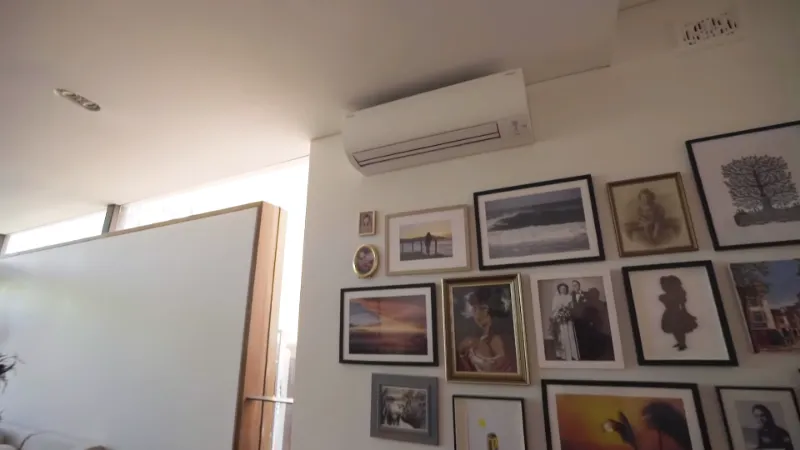
Turning Off Your Air Conditioner
The first step in preparing your air conditioner for a hurricane is to turn it off. This can be done by simply switching off the unit at the thermostat or by unplugging it from the electrical outlet. Turning off your air conditioner before a storm can help prevent damage from high winds, power outages, and water damage.
Unplugging Appliances
In addition to turning off your air conditioner, it is also important to unplug other appliances in your home, including televisions, computers, and other electronics. Unplugging these appliances before a storm can help prevent damage from power surges, which can occur during a hurricane.
Securing Appliances to Prevent Damage From High Winds
Finally, it is important to secure appliances, including your air conditioner, to prevent damage from high winds. This can be done by securing the unit to the wall or by covering it with a protective cover. Securing your appliances before a storm can help prevent damage and ensure that they remain in good working condition after the storm.
By taking these steps to turn off your air conditioner, unplug appliances, and secure appliances, you can help protect your home and belongings and ensure a smooth recovery after the storm.
What to Do if You Evacuate
Turning Off All Appliances
If you are evacuating your home during a hurricane, it is important to turn off all appliances, including your air conditioner, before you leave. This can help prevent damage from power surges and other hazards, and it can also conserve energy. Turning off all appliances before you evacuate can give you peace of mind, knowing that your home and belongings are protected.
Unplugging Appliances
In addition to turning off all appliances, it is also important to unplug them before you evacuate. Unplugging appliances can help prevent damage from power surges that can occur during a storm. This can help ensure that your appliances are in good working condition when you return home after the storm.
Securing Appliances Before Leaving
Finally, it is important to secure appliances, including your air conditioner, before you leave. This can be done by securing the unit to the wall or by covering it with a protective cover. Securing appliances before leaving can help prevent damage from high winds and ensure that they remain in good working condition after the storm.
By taking these steps to turn off all appliances, unplug appliances, and secure appliances before leaving, you can help protect your home and belongings and ensure a smooth recovery after the storm.
Guide of Turning Off Ac During Hurricane
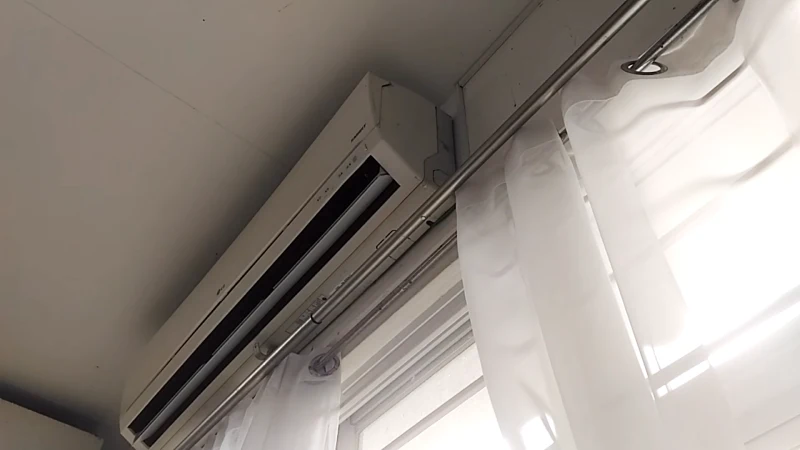
Step 1: Locate the Thermostat or Power Source
The first step in turning off your air conditioner during a hurricane is to locate the thermostat or power source for the unit. This is typically located near the air conditioner, and it is usually a switch or a circuit breaker that controls the power to the unit.
Step 2: Turn Off the Air Conditioner
Once you have located the thermostat or power source, the next step is to turn off the air conditioner. This can be done by simply switching off the unit at the thermostat or by turning off the circuit breaker that controls the power to the unit.
Step 3: Unplug the Air Conditioner
In addition to turning off the air conditioner, it is also important to unplug the unit from the electrical outlet. This can help prevent damage from power surges that can occur during a hurricane.
Step 4: Secure the Air Conditioner
Once you have turned off and unplugged the air conditioner, the final step is to secure the unit. This can be done by securing the unit to the wall or by covering it with a protective cover. Securing the air conditioner can help prevent damage from high winds and ensure that the unit remains in good working condition after the storm.
By following these simple steps, you can help protect your air conditioner and ensure that it is ready for the next hurricane.
Final Words
Turning off your air conditioner during a hurricane is an important step in protecting your home and belongings. Hurricanes can result in high winds, power outages, and water damage, all of which can cause damage to your air conditioner.
By turning off the unit, unplugging it, and securing it before a storm, you can help prevent damage and ensure that your air conditioner remains in good working condition after the storm. Additionally, by following these steps, you can help conserve energy, reduce your energy costs, and ensure compliance with local safety regulations.
For more tips on protecting your appliances during extreme weather, check out our guide on Dimchae kimchi refrigerator problems. Additionally, if you’re dealing with an RV, our article on Dometic RV refrigerator problems can help you prepare for storms. For those with dual evaporator systems, explore our guide on dual evaporator refrigerator problems.

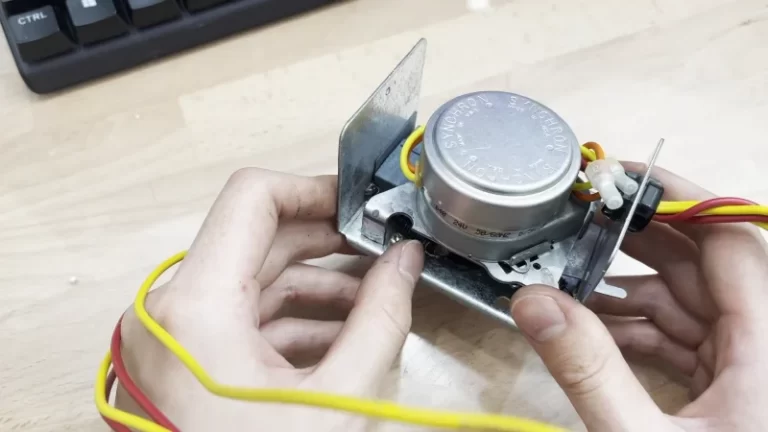
![Polarity Reversed on Furnace [Symptoms, Causes, Fixes]](/wp-content/uploads/2023/02/Polarity-Reversed-on-Furnace-768x432.webp)
